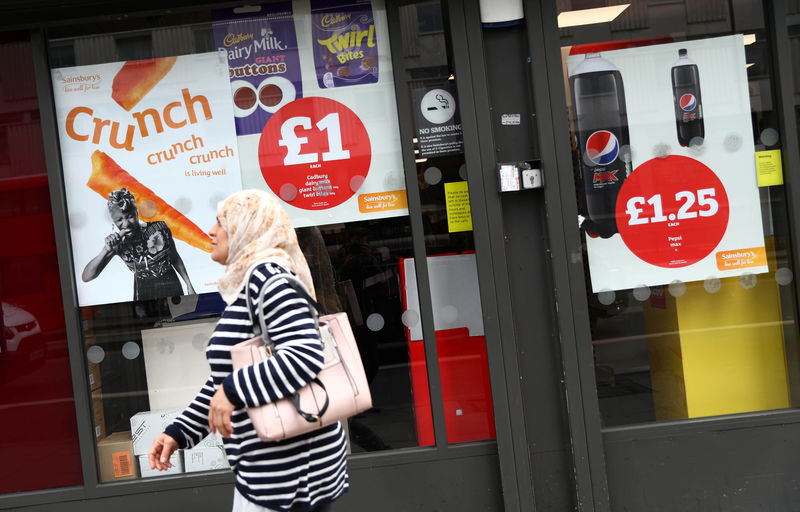By David Milliken
LONDON, June 5 (Reuters) - Britain's services grew more slowly than expected last month as businesses put off investment decisions before this week's national election and higher inflation squeezed households, a survey showed on Monday.
The British economy looks as if it has recovered some of its momentum after slowing in the first three months of 2017, when the cost of the pound's fall after last year's Brexit vote caught up with consumers.
But financial data company IHS Markit, which conducted the survey, said May's weak performance by services increased the risks that quarterly growth in the overall economy might not hit its forecast of 0.5 percent.
In the first quarter, growth slowed to just 0.2 percent, the weakest rate among the Group of Seven economies, and Markit said warning signs were gathering.
"Optimism about the year ahead is running below the long-run average, weighed down principally by concerns over Brexit, political uncertainty and weaker spending by households," IHS Markit economist Chris Williamson said.
Monday's services purchasing managers' index (PMI) fell to a three-month low of 53.8 from 55.8 the month before, at the low end of economists' forecasts in a Reuters poll.
The large size of Britain's services industry meant this decline outweighed last week's stronger-than-expected surveys for manufacturers and construction firms, dragging the all-sector index to its lowest since February as well.
Britain was one of the fastest-growing major advanced economies last year, and since then the number of people in work has risen to a record high - a fact highlighted by Prime Minister Theresa May as she campaigns for re-election.
But the opposition Labour Party has homed in on how wages are now rising more slowly than prices, after a pick-up in inflation driven largely by sterling's fall of more than 10 percent since last year's Brexit vote.
The Bank of England has shown little interest in raising interest rates to tackle what it sees as a temporary spike in inflation this year to just under 3 percent, especially as it expects growth to slow next year as Brexit nears.
The services PMI suggested inflation may be starting to ease in the sector. Average prices charged rose at the slowest pace since November, while corporate costs grew at the slowest rate in eight months, despite a pick-up in salaries.
But new orders flowed in at the slowest pace since February.
Some businesses said it was probably a temporary lull as customers delayed decisions until after the election. But others said there was heightened concern about the economic outlook as well as "intense competition" for new work due to squeezed consumer budgets.
The services PMI does not cover retailers, who suffered their worst quarter since 2010 in the first three months of the year, and appear to have struggled again last month after a brief respite in April.
